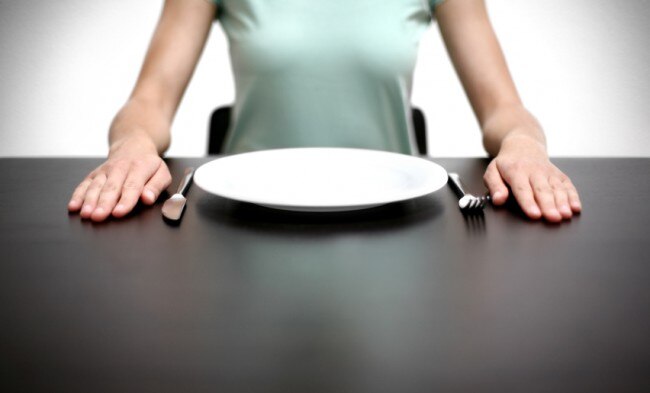You’ve probably heard the saying, “You are what you eat.” But new research on meal timing suggests that when you eat could also play a significant role in heart health and overall wellbeing.
A recent study from the Harvard School of Public Health, or HSPH, found that eating an early meal is important for good health. After accounting for lifestyle factors such as diet, physical activity and smoking, HSPH researchers discovered that men who regularly skipped breakfast had a 27 percent higher risk of heart attack or death from coronary heart disease than those who did eat a morning meal.
“There are a lot of reasons why dieticians promote breakfast,” says McKenzie Hall, RD and co-founder of Nourish RDs. “It helps you keep your cravings in check, and it can enable you to make healthier choices as the day goes on. This can have a positive compounding effect on your health over time.”
Experts believe that the following four factors help make breakfast a delicious deterrent against heart disease and health complications.
Bite off small problems before they become big
Obesity, high blood pressure and diabetes are known to be precursors to serious heart problems, and studies have linked a lack of breakfast to higher incidences of these risk factors.
“Research shows that those who skip breakfast tend to have a higher body mass index (BMI) and an increased obesity risk,” says Chelsea Crabtree, MS, RD, LD. “Some studies show that eating more in the morning instead of at night is associated with lower body weight and weight loss, but more research is needed to draw more conclusive findings.”
A 2013 study by The Obesity Society demonstrated that a high-calorie breakfast promotes blood sugar regulation and weight management, which deter chronic disease. Researchers compared two groups of women who were given a 1,400-calorie-a-day diet. The first group consumed most of the daily calorie intake at breakfast, with progressively smaller meals for lunch and dinner. The second group consumed most of the daily calories at dinner, with smaller meals for breakfast and lunch. The first group who had the big breakfasts achieved more weight loss, as well as a greater decrease in their fasting glucose and insulin.
Early bird gets the nutrients
“Most Americans consume well below the recommended intake of fruits, vegetables, and fiber, but breakfast foods give you a great opportunity to consume nutrients that help fight chronic disease,” says Hall. “Oatmeal is high in fiber, and you can mix in fruits to get disease-fighting compounds like antioxidants.”
The National Center for Chronic Disease Control and Prevention, or CDC, reports that eating at least 2½ cups of fruit and vegetables per day is associated with reduced risk of a heart attack. Dietary fiber that occurs naturally in foods may also help reduce the risk of cardiovascular disease.
“Breakfast is a great way to refuel your body,” says Crabtree. “Focus on a balanced meal that includes all the major food groups — whole grains, low-fat or fat-free dairy, fruits and vegetables, and lean protein sources.”
Picky eaters can use breakfast to sneak in stealthy greens. “Add kale or veggies to an omelet, or throw leafy greens into the blender when you’re making your smoothie,” says Hall.
Curb cravings
Breakfast may help bolster willpower you didn’t know you had. Those who eat breakfast may have fewer cravings for sugary, savory and high-fat foods, according to research published in the Nutrition Journal.
The HSPH study also found that non-breakfast-eaters were generally hungrier later in the day and ate more food at night, potentially leading to metabolic changes and heart disease.
“When people skip breakfast and push back lunch, you’re not giving your body the fuel it needs to run optimally” says Hall. “When your hunger does kick in, you can often overcompensate for what you skipped and then some. Eating breakfast, and eating regularly throughout the day helps to keep your cravings in check.”
Higher protein breakfasts in particular have been linked to combating hunger pains later in the day. A study by the European Journal of Nutrition found that participants who ate a breakfast containing eggs showed increased satiety and a lower food intake at lunch and dinner compared to participants who ate cereal or a croissant for breakfast.
Make it your easiest meal
“Breakfast is the easiest and healthiest meal to do a grab-and-go,” says Hall. “Yogurt, toast and fruit are so portable; you can take them right into the car.”
Read: You don’t have much of an excuse for skipping the health benefits associated with breakfast.
“A lot of healthy breakfast options require little or no prep time,” says Crabtree. “Layer low-fat cheese slices on whole-grain toast. Put turkey on a whole wheat English muffin. Or you can grab a low-fat yogurt, an apple and graham crackers and be out the door.”
Breakfast veterans and newbies alike may want to consider opting for ‘overnight oats’, a new breakfast trend made popular for their ease and nutrient density.
“All you have to do is put oats in a Tupperware or to-go container. Combine it with milk or milk alternative, peanut butter or Greek yogurt, and nuts, berries or other fixings. Put it in the fridge overnight where it ‘cooks,’ and eat it right out of the container in the morning,” says Hall.
Bottom line, having a nourishing meal at the start of the day can put you on the mental path to not wanting to sabotage your healthy-lifestyle efforts.

